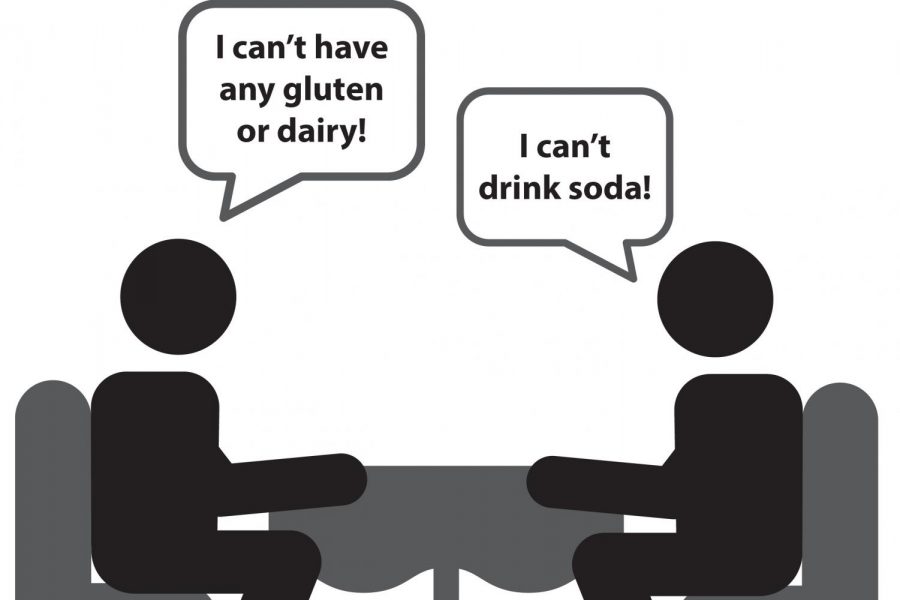SU’s Web of Dietary and Religious Accommodation Policies
Ash Wednesday ushered in the Lenten season last week. In the period of time between Ash Wednesday and Easter, Catholics around the world—including Seattle University students—will participate in Lenten fasts. This is not the only Abrahamic holy period in which millions of people choose to focus on changing certain habits, whether in their everyday lifestyles or dietary ones. Islamic and Jewish traditions also partake in fasting periods.
In accordance with Washington State law, Seattle U’s Office of Institutional Equity has instituted religious accommodation policies. It most recently updated these policies in 2019 after an amendment to a previous state law required universities to provide greater accommodations for students who needed to miss class time or would be experiencing hardship because of religious holidays.
“The policy outlines the framework which requires students to request accommodations from professors,” Assistant Vice President for Institutional Equity at Seattle U Andrea Herrera Katahira said. “Typically accommodations are around rescheduling of exams or due dates, and faculty members are in the best position to make those kinds of accommodations.”
If an accommodation is denied, a student may appeal that decision to the dean of their college or contact the Office of Institutional Equity.
Many Catholics choose to follow the Church teaching that meat should be abstained from on Fridays during Lent and choose to fast on both Ash Wednesday and Good Friday. The practice of giving up personal pleasures and certain foods is one of religious dedication and spiritual significance, but it is just as often a cultural or dietary exercise. Seattle U has even, jokingly, marketed on its newsroom website, “Things to Do for Lent (Besides Giving up Chocolate).”
The United States Conference of Bishops has made it clear that no one should jeopardize their health by fasting and points to a published list of rules about fasting.
“In all cases, common sense should prevail, and ill persons should not further jeopardize their health by fasting.” The elderly and sick are both exempted from Church fasting policies.
In an email statement to The Spectator, Director of Campus Ministry Tammy Liddell said that while Catholic students do not fast for long periods of time and therefore will not likely require any assistance from Seattle U, the Muslim holy month of Ramadan—in which those that practice the faith fast from dawn untill sunset for the duration of the month—is a more demanding practice.
“We send a letter to faculty and staff, and a separate letter to students at the start of Ramadan…this letter describes the practice of fasting and how it might impact students so that professors and supervisors can be attentive to any accommodations that are requested,” Liddell said in the statement.
Campus Ministry also contacts dining services during Lent to notify staff of the changes in Catholic students’ diets.
24.5% of students at Seattle U are Catholic and 1% of students are Muslim, according to the Undergraduate Student Profile, meaning a significant portion of students practice a form of religious fasting.
Student Government of Seattle U has not passed legislation pertaining to religious accommodations for fasting. Director of Student Involvement Bernie Liang confirmed this.
There are year-round vegetarian and vegan options at Seattle U dining facilities. However, Chartwells’ offerings for individuals with dietary restrictions have not been met with all-around positive reviews.
“The options are definitely not great. I think that they could stand to improve a lot more,” Sofia McMillan, a vegetarian student, said.
Seattle U’s marketing campaigns have made a point of encouraging inclusivity on campus. Last year’s Student Mission Day featured Georgetown University Sociology Professor Michael Eric Dyson delivering a speech calling on Seattle U to reflect on whiteness and privilege in a Jesuit University context. However, there have not been any major campus events reflecting on dietary accommodations for religious fasting practices.
Fasting is a private religious practice, meaning there has not been a swell of advocacy on the behalf of students for policies or accommodations to change. However, it is evident that Seattle U as an institution is still aware of student fasting practices. The efforts of Campus Ministry and the Office of Institutional Equity reflect a recognition of the spiritual significance of the practice.
While there is a checkered student response as to how effective the school’s efforts are, there is an ongoing conversation around how Seattle U can better serve the religious needs of students.


